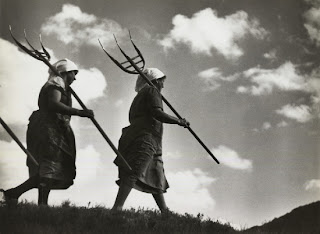
Questions about Power?
Who has power in a school? Do the kids have control? Do administrators have control over teachers and staff? How is power shared or horded in a school? The questions are not comfortable to ask. Is there a particular position that lends itself to power/sharing/manipulation? Who has the power to stop it from happening? Can individuals disconnect or reject power?
What is Power in a School Setting?
Power is typically viewed as being consolidated with administration and their ability to make decisions--hiring, firing, schedule making... However, dig a little bit deeper and in every school across
I am thinking about a time when a parent said to me, "Your classroom is a zoo at the end of the day. I am going to put together this system for you. All you need to do is keep track of it during the day, and I'll bring in candy for a reward." Gulp. Power was in flux. As a new teacher, I almost capitulated and allowed a parent to make an assessment about my class, provide a solution (in her mind), and dictate to me how to function. Was her idea bad? No. Was it noisy at the end of the day? Yes. Did I want to fight that battle? No. The morning was more important to me, so I spent my energies working toward a time that mattered more to me and ultimately student learning. A pastor friend gave me a fine piece of advice many years ago, "Jon, if someone has a good idea for you and you are not sure how to respond, sincerely say, 'I'll get back about that.'" So, The next day I sat down with the parent and told her that I appreciated her concern, but I was going to focus more on the morning time and at the end of the day, I'm more inclined to let kids talk and be kids. The parent exploded, "Fine then I'll just not say a word. I'll let you do all the talking and not even give any suggestions!" I was taken back by the response, "I like the fact that you care so much about your child and the class to offer suggestions. Don't stop helping and thinking of ways to make the class better, this idea is just not something I'm going to do right now."
Power in Practice
This parent ended up being one of my best and most reliable volunteers. The help was invaluable and provided me more time to work with kids. However, the flow of power needed to be checked. Could she dominate the classroom? Could I dominate the classroom? Could the students dominate the classroom? Was I the boss? Yes. Did I need all the power? No. I shared my power with her and the students. The situation had the potential to create sleepless nights--why am I doing some behavior plan, when it is not a big deal to me? It could have destroyed the respect I have for parents--they just want to control me and champion their own agendas. What helped me navigate this power struggle? Luck? Maybe. I hate being manipulated, but do I have the courage to appropriately confront it? Teachers typically have no problem dealing with students' power issues. Positional power makes confronting kids easy. But what about power problems with staff members or parents?
(Note: some of the examples are compilations of parents or staff members--no one person is represented in the anecdotes)



